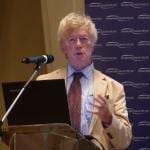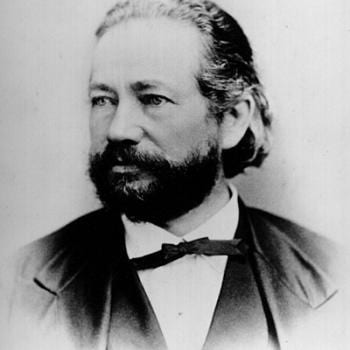
Kimball: Scruton’s highest vocation was a teacher and mentor. He understood as Socrates understood, how to live the good life is the animating question of Scruton’s life in his polemical writings, his activism in Poland, his architectural enthusiasms, and etc. But his greatest impact was on those who knew him and were mentored by him. In other words, his friendship.
Kimball suggests (as I wrote yesterday) that we are living through a moment not unlike the late 1960s when Sir Roger was in Paris witnessing mindless destruction which turned him from his flirtation with socialism and toward his (eventual) conservatism. (Mentions the “Why I Became a Conservative” essay).
Murray: The building up of people, predominantly through his writings, is his greatest gift to humanity, one which will continue on.
Building on Kimball’s invocation of Scruton’s conversion moment in the 1960s, the act of tearing down is easy but the slow burn of building up, of course, takes longer. But it can be done and Scruton dedicated his life to that task.
Kimball: The “culture of repudiation” (Scruton’s term) describes so many aspects of our culture, namely, the “hooligans” on the streets using the death of George Floyd as a pretext for violence and cultural destruction. Scruton’s work was an effort to refers the repudiating impulse. His idea of oikophilia was a response to the rampant oikophobia peddled by certain pockets of the intelligentsia (viz., the pockets that hated him most).
Was against the “guardians of virtue” are all for free speech and diverse opinions until they actually encounter them. This is a polite mode, says Kimball, of repudiation. But it has become increasingly less polite, more aggressive. Kimball recalls the hit job on Scruton by the New Statesman and invites Murray to comment on the libelous attacks.
Murray: Says Scruton saw the New Statesman incident as a recurrence of what he had gone through early in his career after publishing his first few books on conservatism.
Many people inspire vitriol by what they say but Scruton received a special dose of vitriol because they realized he was a real threat. He wasn’t a pushover. “He was consistently exposing the vacuousness of his opponents’ worldview… He pointed to the sadness and hollowness of their worldview.”
Murray says thinks that very few conservatives recognize the depth of liberal claims. They are not just procedural claims. This reminds me of Sohrab Ahmari’s recent article “How to be right” at the Spectator and Gladden Pappin’s survey last week at American Affairs of the trajectory of conservative thought. That to say, people are starting to get exactly what Murray is mentioning here.
Scruton, in Fools, Frauds, and Firebrands, was ahead of his time in doing this. Therein he “deconstructed the deconstructionists,” says Murray. He took them seriously, recognizing that the surface-level procedural commitments of liberals, and their resentment for the given, must’ve been coming from somewhere. But he not only took them head on but offered antidotes to their resentment. Murray identifies this last bit as the truly unique contribution of Scruton, in addition, of course, to all his expert analysis of the substantive claims and worldview of the new left.
Kimball fully agrees. Scruton’s genius was taking his opponents seriously and provided the best possible account of their ideas and then showed how ridiculous said ideas were.
But a question Scruton asked is why people take Derrida and Foucault, et al. seriously. His conclusion was that its because such thinkers, standing the tradition (in many ways) of Rousseau, are engaged in fantasy. But, in fact, their utopian ambitions, as they succeed, move further and further out of their reach because they destroy everything good about civilization– the only things that would actually lead to the improvement they claim to desire. Scruton helped people understand that concepts demonized by the fools, frauds, and firebrands are actually “spiritual goods” that satisfy needs of the full man. Tradition, “prejudice” (in the Burkean sense), and rootedness, etc. are necessary human goods and natural human expression.
Murray adds that Scruton famously said that the job of the conservative of philosopher is to explain to the general public that their natural prejudices are correct; to remind people why the obvious was justified; over and against the indoctrination that tries to convince people that they are in error, that their natural proclivities for beauty and the like are detestable and irrational.
Kimball: Scruton, as a lover of beauty, understood that in human matters, what is essential is not hidden– requiring rational inquiry to unlock Gnostic-like knowledge– and are, indeed, beyond rationality. The shallow rationalists, and disciples of scientism, want to tell you that your human experience is an illusion. Such “intellectuals” abandon wonder as a starting point and thereby produce only explanation rather than meaning.
This leads seamlessly into a discussion of religion by Kimball and Murray…












